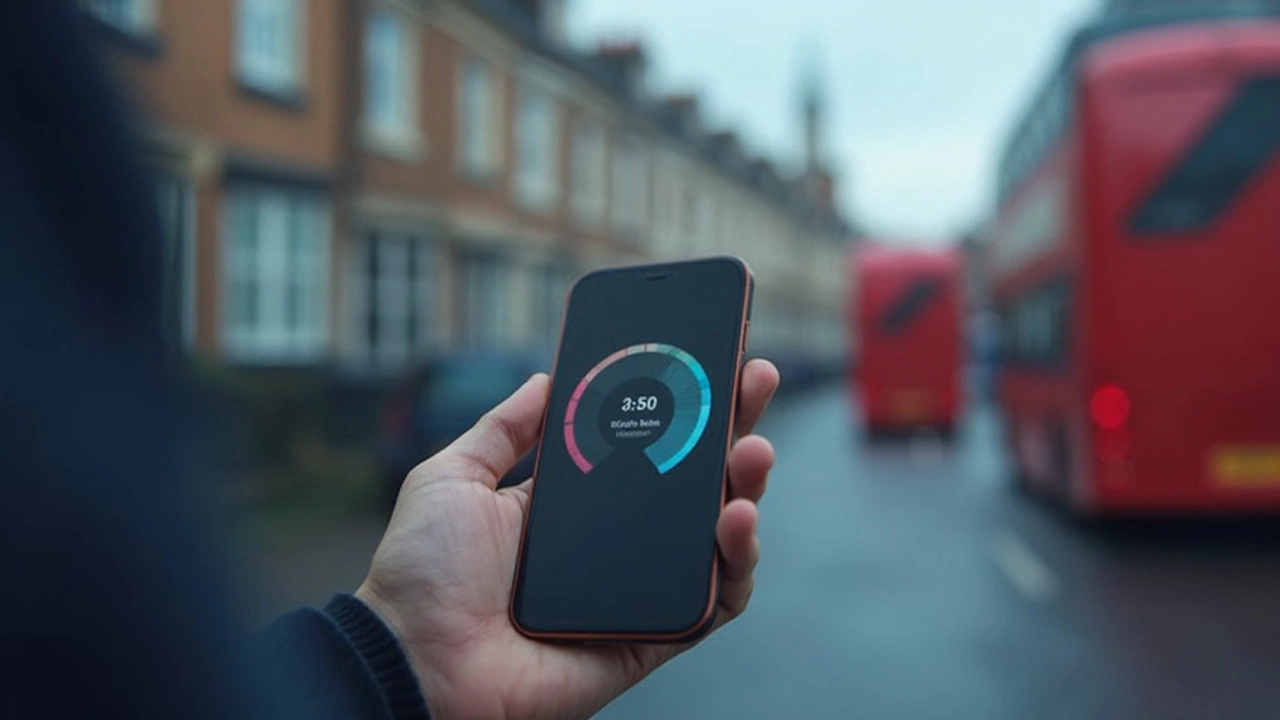So you’ve set your sights on a $600,000 house. First step? Check your credit score—it’s basically your ticket in the door. Most lenders want to see at least a 620 if you’re thinking about a conventional loan. If your score falls below that, things get tricky. Sure, there are some government-backed options that will work with scores as low as 580, but be ready for more hoops to jump through and maybe a bigger upfront payment.
But the magic number isn’t just about qualifying. A better score can save you thousands over the life of your loan. For example, with a 740 or above, you’ll likely get the lowest interest rates lenders offer. Drop into the 600s, and suddenly your monthly payment may jump—sometimes by hundreds of bucks—which adds up fast on a big loan.
- What Is the Minimum Credit Score for a $600k House?
- How Your Credit Score Impacts Your Loan and Payments
- What Lenders Look for Besides Credit Score
- Tips for First-Time Buyers to Boost Mortgage Approval Odds
What Is the Minimum Credit Score for a $600k House?
If you’re aiming to buy a $600k house, the first number you need to check is your credit score. For a regular conventional mortgage, lenders usually want to see at least a 620 FICO score. That’s their basic cutoff. With less than 620, most big banks and online lenders won’t even take the application. They use this line because of rules from Fannie Mae and Freddie Mac—basically, if you want a typical 30-year fixed mortgage, 620 is the magic number.
If your score is lower than that, you’re not totally out of luck. FHA loans, which are backed by the government, let you sneak in with just a 580. But honestly, to buy a $600k home with just 3.5% down—the standard minimum for FHA—you’re probably going to hit another wall: loan limits. In most places, FHA only covers houses up to around $498,257 (as of 2024), but some high-cost areas have higher limits. So, unless you’ve got a chunky down payment ready to cover the gap, FHA probably isn’t your ticket for a higher-priced home like this.
Here’s a quick look at typical loan type minimums:
| Loan Type | Minimum Credit Score |
|---|---|
| Conventional | 620 |
| FHA | 580 (with 3.5% down) |
| VA | Technically none, but lenders want 620+ |
| Jumbo | 680-700+ |
If that big $600,000 number puts you into jumbo loan territory—which is anything that’s above the federal loan limit for your area—a lot of lenders raise the bar. Expect them to want a credit score of at least 700, and sometimes even 720 or higher. And the bigger your down payment, the more they might relax.
Bottom line: to buy a $600k house with a regular mortgage, aim for a credit score of at least 620. If you land higher, even better—you’ll get lower rates. And if you’re looking into a jumbo loan, 700 is the number to beat.
How Your Credit Score Impacts Your Loan and Payments
Your credit score is way more than just a number when you're eyeing a $600k house—it’s basically the main thing lenders stare at when deciding interest rates and loan terms. The higher your score, the better the deal you get. The lower your score, the more expensive your mortgage can become. Lenders use score “brackets,” and small shifts can move you into a pricier bracket fast.
Here’s what really happens: if your score is above 740, lenders usually reward you with the best rates out there. Somewhere between 700–739? Your deal is still pretty good, but not the lowest. In the 660–699 range, expect your interest rate to creep up, and below 660, you start losing a lot of negotiation power. Even a difference of 20–30 points can change your monthly payment by a serious chunk.
Let’s talk numbers. If you’re putting 20% down, here’s how the estimates can look for a first time buyer looking for a $600k home—assuming a 30-year fixed mortgage, rates from recent months, and average lender fees:
| Credit Score | Approximate Rate | Monthly Payment (principal & interest) |
|---|---|---|
| 760+ | 6.3% | $2,967 |
| 700–759 | 6.6% | $3,048 |
| 660–699 | 7.1% | $3,198 |
| 620–659 | 7.7% | $3,357 |
Isn’t it wild? That gap between a 760+ score and a 620 means you could pay almost $400 more every month—for the same house. Over a 30-year loan, that's about $140,000 extra just because of your score.
The higher your credit, the more lenders want your business. That means more loan options, a better shot at waiving certain fees, and less stress over getting mortgage approval. So, before you start home shopping, check your score. Just a small boost might mean saving more than you think in the long run.

What Lenders Look for Besides Credit Score
A good credit score isn’t the only thing banks check when you apply for a mortgage on a $600k house. Even with an excellent score, you can still get turned down if other parts of your financial story aren’t up to snuff. Here’s what else matters:
- Debt-to-Income Ratio (DTI): Lenders want to see if you can actually afford the monthly payment. Most prefer your total monthly debts—including your new mortgage—to be no more than 43% of your gross income. Lower is better. If your debt load is high, you might have to look at less expensive homes, pay down some debt, or come up with a higher down payment.
- Proof of Income and Job Stability: You’ll need to show pay stubs, W-2s, maybe a couple of years’ tax returns, and sometimes bank statements. If you’re self-employed, get ready for more paperwork. Lenders want to be sure your income is steady and reliable.
- Down Payment: The more you can put down, the less risky you look. Standard is 20%, but with some loans you can go as low as 3%—just be ready for extra fees like PMI (private mortgage insurance) if you dip below that mark.
- Assets and Savings: Having money left over after paying the down payment and closing costs (lenders call this “reserves”) is a big plus. It shows you won’t be flat broke after the deal closes and could help you qualify for a bigger loan.
- Employment History: If you’ve bounced around jobs, that might raise a red flag. Two years at the same gig looks great, but changing jobs isn’t a dealbreaker—so long as your income is steady or growing.
Check this out: Here’s what a lender might look for if you’re aiming for a $600,000 house mortgage.
| Factor | Typical Requirement |
|---|---|
| Credit Score | 620+ (conventional), 580+ (FHA) |
| Debt-to-Income Ratio | 43% or less |
| Down Payment | 3%-20% |
| Employment History | 2 years preferred |
| Available Savings | 2-6 months’ mortgage payment reserves |
Every lender has a slightly different way of weighing these things. The main point: tackling weak spots—like high debt or a short job history—can matter as much as, or even more than, improving your credit score. Get these parts in shape and you’ll stand out as a stronger home loan candidate.
Tips for First-Time Buyers to Boost Mortgage Approval Odds
If you’re trying to buy a $600,000 house as a first-time buyer, there’s a lot you can do to improve your shot at approval. Lenders look at more than your credit score, but bumping up that three-digit number is always a smart move before you start mortgage shopping.
- Clean Up Your Credit Report: Request a free credit report from the main agencies (Experian, Equifax, TransUnion). Check for old debts, errors, or late payments. Disputing mistakes or paying off past-due accounts can boost your score faster than you think.
- Lower Your Debt-to-Income Ratio (DTI): Lenders use your DTI to figure out if you can handle a $600k house payment. Try to pay down credit cards and keep monthly debts below a third of your income. For a conventional loan, shoot for a DTI under 43%.
- Save a Bigger Down Payment: Putting at least 20% down (that’s $120,000 for a $600k home) can help you get better rates, skip private mortgage insurance (PMI), and look like a safer bet to lenders. Even if you can’t hit 20%, more down is always better.
- Don’t Open New Credit Accounts: Every time you apply for new credit or rack up more debt, your score can dip. Hold off on new cars or big purchases until you close on your house.
- Get Pre-Approved: Pre-approval from a lender puts you in a stronger spot when you make an offer and shows sellers you’re serious. It’s also a good time to catch any financing surprises early.
Want to see how little changes can play out? Here’s how credit score, down payment, and interest rates can shift your monthly payment on a 30-year fixed loan:
| Credit Score Range | Interest Rate (2025 avg) | Monthly Payment* |
|---|---|---|
| 760+ | 6.0% | $3,597 |
| 700 - 759 | 6.5% | $3,792 |
| 660 - 699 | 7.0% | $3,992 |
| 620 - 659 | 7.5% | $4,197 |
*Based on $480k loan (20% down on $600k). Taxes, insurance not included.
Little boosts here and there can save you big money on your home buying journey. Start prepping early, and don’t be afraid to shop around for a lender that gives you the best shot at approval and a good deal.


Corbin Fairweather
I am an expert in real estate focusing on property sales and rentals. I enjoy writing about the latest trends in the real estate market and sharing insights on how to make successful property investments. My passion lies in helping clients find their dream homes and navigating the complexities of real estate transactions. In my free time, I enjoy hiking and capturing the beauty of landscapes through photography.
view all postsWrite a comment